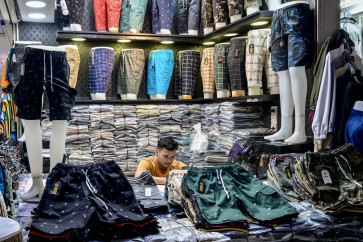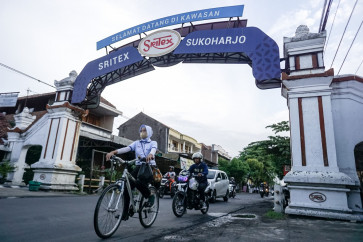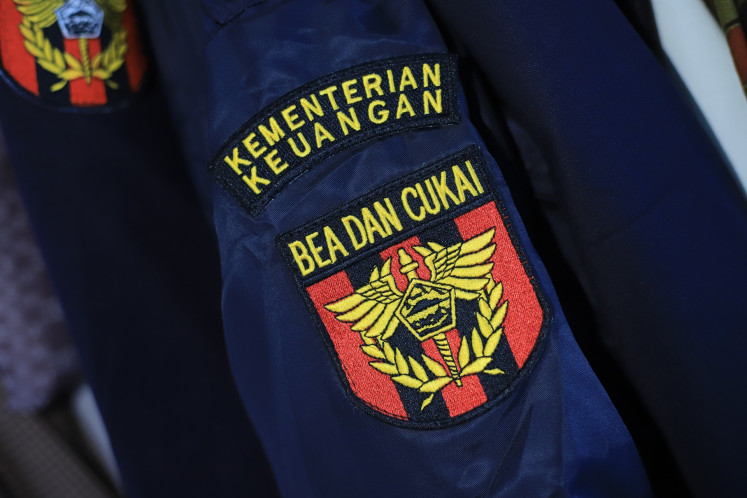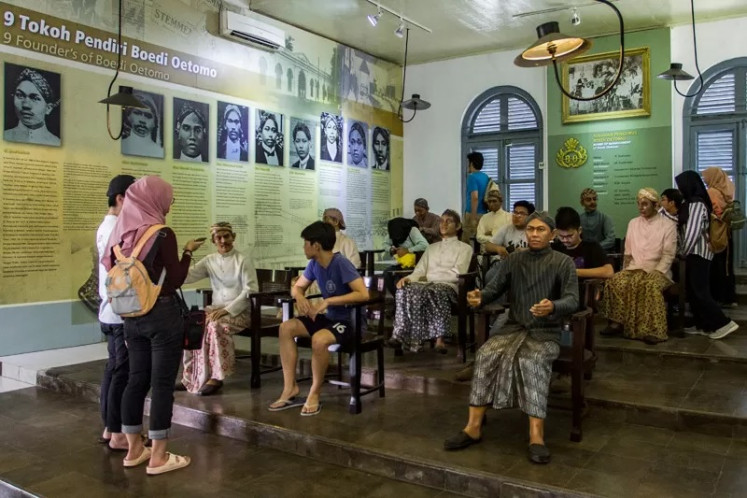Quarantine rule too risky amid global case resurgence: Experts
International arrivals must quarantine for five days
Change text size
Gift Premium Articles
to Anyone
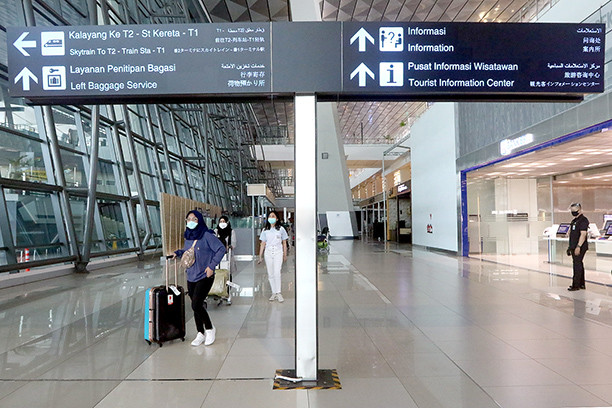
A
mid a resurgence of COVID-19 cases globally and growing concerns of more transmissible coronavirus variants, doubts have been raised as to whether Indonesia's quarantine policy would be sufficient in protecting the country from these threats.
Current rules require international travelers to quarantine for five days upon arriving in Indonesia, but travel from India is now an exception due to the country's world record-breaking daily coronavirus cases.
Describing India's COVID-19 situation as "worrying", Indonesia has followed several other countries in temporarily suspending visa issuances to Indian nationals and foreigners who have traveled to the South Asian country within the past 14 days. Indonesian nationals with a two-week travel history to India can still enter the archipelago but have to undergo "stricter health protocols" with a longer quarantine period of 14 days upon arrival.
Experts, however, say that the restrictions are not tight enough and have called on the government to require all inbound international travelers — regardless of their point of departure — to undergo the same 14-day quarantine period. They emphasized that there was no scientific evidence supporting the five-day quarantine policy.
"The fact is that so far, one of the important things done by countries that are successful in containing the pandemic is that they implement a strict quarantine system at entry points. None of them requires less than 10 days of quarantine," said epidemiologist Dicky Budiman of Australia's Griffith University.
Read also: Indonesia bans travel from India amid imported COVID-19 case, surge
Countries such as South Korea, Singapore, Australia and New Zealand have a 14-day mandatory quarantine policy for international travelers. Hong Kong has even increased its requirement to 21 days for people coming in from high-risk areas, and those arriving from lower-risk areas must still self-monitor for another seven days and take another coronavirus test after spending 14 days in quarantine.
The government has argued that five days would be sufficient, claiming it had consulted with various experts and citing data that suggested five days was the average incubation period of the virus.
The incubation period refers to the time between exposure to the virus or becoming infected and the onset of symptoms. While it is true that the incubation period averages between five and six days, it can also last up to 14 days, and some infected persons can still be contagious even before they show symptoms, according to World Health Organization.
"[Without strict quarantine rules], these people have the risk of transmitting the virus to others. And if they have the 'variants of concern', then we will see a spike in cases [...] This is not just about India," said Masdalina Pane of the Indonesian Epidemiologists Association (PAEI).
She was referring to a term used for coronavirus variants that may make the virus spread easier, lead to more severe illnesses and escape immune responses.
Indonesia has detected at least 10 cases with the more transmissible variant first detected in the United Kingdom, the B117, six of which were imported cases and four locally transmitted.
Read also: Indonesia detects more contagious British virus variant. What now?
Not all new variants found across the globe are concerning. There are currently three variants of concern.
The variant detected in India and is feared to have driven the spike in cases there is currently deemed a "variant under investigation", but it has spread to other countries, such as Indonesia's neighbor Singapore and the UK.
Foreign arrivals in Indonesia are restricted to travelers with temporary (KITAS) and permanent stay permits (KITAP), under the Travel Corridor Arrangement scheme and those with special permits from ministries and institutions.
They also have to present proof of a negative polymerase chain reaction (PCR) test taken no more than three days before their flight and must get tested again upon arrival. They then have to quarantine for five days at appointed facilities. The government will cover the costs of quarantine for Indonesian migrant workers, students and government workers, while other Indonesian and foreign nationals must pay out of pocket.
Upon completing the five-day quarantine, they have to undergo another test. If they test negative, they are discharged and are only advised to self-quarantine for another 14 days.
Masdalina of PAEI regretted that the policy appeared to take more into account the economic benefits of shorter quarantine periods, at a time when the government should be alarmed by the emergence of new variants globally. Even with travelers having tested negative before boarding the plane, there could be cases of false negatives or tests being done at questionable places, she said, while transmissions could also occur in closed spaces, such as during flights.
Read also: India posts global record of 315,000 daily Covid cases
Health Minister Budi Gunadi Sadikin said on Monday that strict health protocols and screening at entry ports would be necessary to "protect Indonesians from the potential of the previous mistake of new variants entering" the country.
He said hundreds of thousands of Indonesian migrant workers had returned to the country and thousands more would arrive, pledging that their test samples, as well as those of Indonesians from India, would undergo whole-genome sequencing to detect any variants. Of the over 1.6 million cases, Indonesia has submitted 1,158 whole-genome sequences to Germany’s GISAID database.
Even with such relatively lax quarantine rules, the Jakarta Police have arrested an Indonesian national arriving from India for allegedly bribing two people claiming to be Soekarno-Hatta International Airport staffers, Jakarta Police spokesperson Sr. Comr. Yusri Yunus said on Tuesday as quoted by kompas.com. The person allegedly paid Rp 6.5 million (US$449) to avoid quarantine and the police were still looking into the case, he said.


